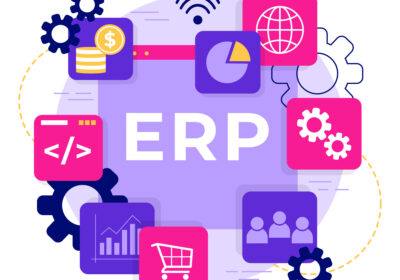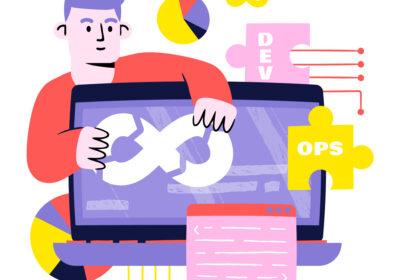Enterprise Resource Planning (ERP) systems have been the operational core of organizations for years. But today, in 2025, ERP isn’t merely about process management—it’s about making them intelligent. AI is revolutionizing ERP from a system of record to a system of insight and foresight, providing real-time decision-making, adaptive processes, and proactively driven business results.
In this blog, we examine how AI is transforming ERP capabilities in 2025, and what it means for businesses, and how companies can take advantage of these advancements to gain lasting competitive benefit.
From Automation to Autonomy: The Evolution of ERP AI
Early AI in ERP was primarily concerned with automating tasks—such as invoice matching or forecasting demand—but 2025 introduces cognitive and agentic ERP systems. Such platforms now enable:
-
Predictive analytics and scenario modeling
-
Conversational interfaces and NLP-based search
-
Autonomous agents for operations, procurement, and finance
-
AI-driven personalization for users and workflows
Modern ERPs are no longer static systems—they learn, adapt, and recommend.
Key AI Capabilities in ERP Systems – 2025 Edition
1. AI-Powered Demand Forecasting and Supply Chain Optimization
Supply chain resilience is no longer a luxury—it’s a necessity. AI in ERP now enables:
-
Real-time forecasting using external signals (weather, market trends, geopolitical events)
-
Dynamic safety stock adjustments
-
Automated supplier risk scoring and rerouting
Result: Lower stockouts, better cash flow, and dynamic sourcing.
2. Autonomous Finance and Accounting
AI is reducing complex financial tasks across:
-
Expense management: AI detects anomalies, duplicates, or non-compliant claims.
-
Accounts receivable/payable: Predictive collections, smart payment timing.
-
Audit readiness: Ongoing compliance monitoring and AI-driven audit trails.
What’s New in 2025: Generative AI generates financial narratives from raw data—monthly reports, board summaries, and variance explanations.
3. HR and Workforce Intelligence
People analytics has transformed into proactive talent management:
-
Anticipate attrition risk and suggest retention interventions
-
Bias-mitigated candidate matching supported by AI-assisted hiring
-
Customized learning pathways and skill-gap analysis
Bonus: Conversational AI agents process employee inquiries, onboarding, and self-service across geographies.
4. Smart Procurement and Spend Analytics
ERP-integrated AI now supports procurement teams:
-
Detect maverick spend and propose preferred vendors
-
Streamline RFP development and scoring
-
Negotiate contracts with AI-generated text proposals
AI agents can track contracts and initiate renewals, renegotiations, or notifications independently.
5. Natural Language Interfaces for Interaction with ERP
In 2025, users of ERP interact more and more using chat-based or voice-based interfaces:
-
“What is our Q2 inventory turnover ratio?”
-
“Display all delayed shipments of the past 30 days.”
-
“Create a purchase order for 500 units of SKU A.”
These interfaces make ERP more accessible to everyone, giving non-technical users insights and capabilities.
6. Hyper-Personalization and Adaptive UI
ERP dashboards are context-aware today. AI adjusts based on user role, behavior, and activity history:
-
KPI arrangements
-
Recommended actions
-
Workflow prioritization
It’s the ERP version of Netflix’s recommendation engine—except it makes business performance happen, not entertainment.
7. AI-Powered Exception Management
Rather than responding to issues, AI marks exceptions in real-time:
-
Abnormal customer orders
-
Suspicious transactions
-
Manufacturing cycle delays
And more importantly, it proposes corrective action, frequently automatically, saving firefighting and enhancing operating stability.
Challenges Ahead
Although AI-powered ERP brings tremendous value, companies need to tackle:
-
Data silos and data quality problems across functions
-
Ethical application of AI, particularly in finance and HR
-
Change management as roles get redefined with AI-augmented decision-making
Additionally, not all ERP providers have mature AI capabilities available. Companies need to make informed decisions on AI-readiness of platforms and partners.
How Verbat Can Help
At Verbat, we assist organizations to transform ERP with AI—whether you’re on SAP, Oracle, Microsoft Dynamics, or cloud-native systems. Our AI-enhanced ERP capabilities include:
-
AI-readiness evaluations
-
Custom AI agent creation
-
Predictive analytics adoption
-
ERP conversational interface design
We envision the future ERP not only to be intelligent but also collaborative, adaptive, and predictive.
Final Thoughts
In 2025, ERP systems are no longer mere record-keepers. They are becoming strategic co-pilots—providing real-time foresight, smart automation, and workflows that personalize to business change.
Companies that take on AI-driven ERP will open up quicker cycles of decision-making, greater efficiency, and a competitive advantage in a chaotic marketplace.




